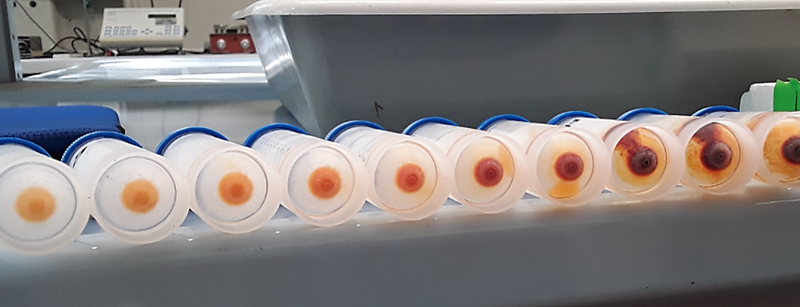OPTIMIZED THE PROCESS OF LYCOPENE EXTRACTION FROM TOMATOES FOR THE FOOD AND COSMETIC INDUSTRY
Lycopene is the carotenoid responsible for the red colour of the tomato known for its antioxidant properties employed for the production of food supplements, cosmetics and functional foods.
Organic solvent or alternatively the supercritical CO2 as more sustainable chosen are employed for the extraction of lycopene because of its lipophilic nature and tendency to form poorly soluble aggregates.
Tomato seeds and peels (i.e. pomace) discarded during the industrial production of sauces are an advantageous source of lycopene; when pomace is processed by using the supercritical CO2 extractor, oil from the seeds becomes the solvent in which lycopene is solubilised. DISAA researchers demonstrated how the concentration and the qualitative composition (cis and trans isomers) of the lycopene affected the quantity and composition of the oil-solubilized fraction. Basing on the equations of solubility of lycopene in oil, the researchers proposed an improvement of the extraction process by adding of more tomato oil to maximize the production of extracts.
Reference:
Squillace, P.; Adani, F.; Scaglia, B. Supercritical CO2 extraction of tomato pomace: evaluation of the solubility of lycopene in tomato oil as limiting factor of the process performance. Food Chemistry, Volume 315, 15 June 2020, 126224.
DOI: https://doi.org/10.1016/j.foodchem.2020.126224
The article is available at the link https://authors.elsevier.com/a/1aUnF16Ds1lfMi
util 20 March 2020.

